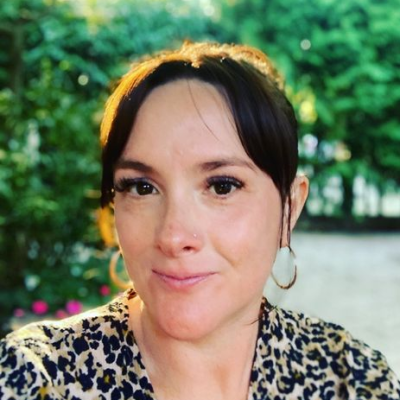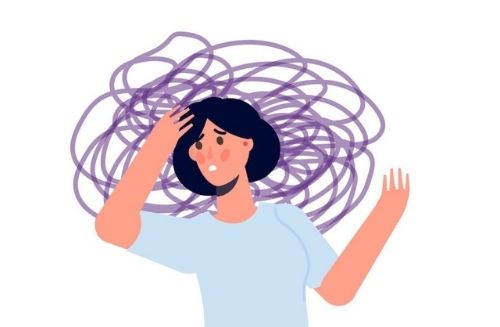Phobias
Phobias develop when someone has an exaggerated or unrealistic fear surrounding a certain situation or object. If this situation or object is common in day-to-day life, the phobia can restrict a person’s life, holding them back from doing what they want to do and causing a lot of distress.
Here, we’ll explore how hypnotherapy can help you unlearn the fear response, build up your exposure to the phobia and, in time, ease the associated anxiety.
Understanding phobias
Fear is a natural and healthy response we all have to danger. It’s a survival instinct designed to help us avoid and escape threatening situations. Phobias, however, are different - they are more intense than fears. A phobia is a type of anxiety disorder, which can lead to severe anxiety and panic attacks for some people.
Often, you’ll feel the symptoms when you come into contact with the phobia but, for some people, the symptoms can come on simply from thinking about it. When you come across the source of your phobia, you’re likely to feel incredibly scared, nervous and anxious. You may also feel physical symptoms of fear and anxiety, such as:
- dizziness/lightheadedness
- sweating
- fast heartbeat and/or palpitations
- nausea
- shaking
- an upset stomach
If the source of your phobia is something you don’t come into contact with often, this phobia may not interfere with your everyday life. If it's something you're likely to come into contact with day-to-day, however, your phobia may have a larger impact on your life.
In this video, cognitive hypnotherapist Natalie Swanson (BSc, BComm Hons, DipCHyp) discusses how hypnotherapy can support you in overcoming a phobia.
Types of phobia
Phobias generally fall into two categories: specific phobias or complex phobias.
Specific phobias
Also known as ‘simple phobias’, this type tends to centre around a specific object, animal, situation or activity. These tend to develop in our youth and may become less severe as we grow older.
Examples of specific phobias include:
- animal phobias e.g. spiders, snakes or dogs
- environmental phobias e.g. heights, germs, open water
- situational phobias e.g. flying or visiting the dentist
- bodily phobias e.g. having injections, vomit or blood
- sexual phobias e.g. fear of getting a sexually transmitted infection or performance anxiety
- other e.g. certain objects or food items
My phobia is often laughed at, scoffed at and dismissed as silly. It was time to try a new tactic with different support, so I decided to visit a hypnotherapist.
- Read more about Katie’s experience of hypnotherapy for a balloon phobia
Complex phobias
These phobias often surround more everyday activities and can impact a person’s life more than specific phobias. They tend to develop when we’re adults and stem from deep-rooted anxiety about a particular situation or circumstance.
Two of the most common complex phobias are:
Agoraphobia - This is when someone feels anxious about being in a certain place or situation where it’s difficult for them to escape if they have a panic attack. This can lead them to avoid busy or crowded environments, travelling on public transport or even being alone.
Social phobia - Also known as social anxiety disorder, this phobia centres around social situations and interactions. Someone with a social phobia may avoid speaking in front of other people for fear of being humiliated. In some cases, this can stop people from socialising and carrying out everyday tasks.
Tokophobia
Tokophobia is the extreme fear of pregnancy. This fear of childbirth can be paralysing and can often lead to women avoiding childbirth altogether, even if they are desperate for a child.
While fear around labour and pregnancy is relatively common, tokophobia is the extreme. According to the National Childbirth Trust (NCT) between 20% to 78% of pregnant women report pregnancy-related fear, yet only 13% report a fear so overwhelming that they either postpone or completely avoid childbirth.
Tokophobia is an autonomous fear of pregnancy or childbirth, this is normally a consequence of hearing distressing painful labour stories as a child or due to family members also having the fear. The implications of this phobia can cause women to become serial daters and avoid committed long term relationships. They also, very early on in a relationship, communicate the desire of never wanting to have children.
There are two types of tokophobia, primary and secondary. Primary tokophobia typically is more common and intense in women who have never been pregnant. While secondary tokophobia often occurs in women that have had previous pregnancies, who have experienced a traumatic birth.
Learn more about birth trauma (PTSD) on Counselling Directory.
Treatment for tokophobia
A strong support network is key. Tokophobia can be a lot easier to manage if surrounded by supportive partners, families, sisters, friends or colleagues. Other forms of treatment include cognitive behavioural therapy (CBT), psychotherapy and in some cases, medication. Hypnobirthing may also be recommended to help ease anxiety.
What causes a phobia?
As with many matters of the mind, phobias rarely have a single cause. There can be a number of factors involved. The phobia may have stemmed from a particular trauma or event (for example, if you experienced a particularly bumpy flight when you were younger, you may develop a fear of flying as a result). Or it may be a learned response that you picked up from someone else (for example, if your mother screamed when they saw a spider, you may have subconsciously learnt that this is the appropriate response).
Some research also points to genetics being a factor. So it may be that you were simply born with a tendency towards anxiety. Existing mental health conditions like depression, anxiety and long-term stress can all feed into the development of a phobia, too. Cultural factors can also be the reason why someone develops a phobia. There are several phobias that only occur in specific cultural groups.
Regardless of the cause, it’s important to know that phobias can be treated and help is available. If you feel as though your phobia is holding you back or it’s interfering with your life in a significant way, consider seeking support. For many people, hypnotherapy is a helpful tool.
Hypnotherapy for phobias
Phobias work on a subconscious level. This means that no matter how much we tell ourselves that XYZ isn’t life-threatening, our minds and bodies still react with fear. Hypnotherapy aims to communicate with the subconscious and change the way you feel and behave towards your phobia.
The process itself involves putting you into a very relaxed, hypnotic state. Your hypnotherapist will talk you through this and you’ll be in control the whole time. If you’re unsure where your phobia came from, you may spend some time getting to the root of the phobia and remembering the event that triggered it (if there was one).
Your therapist can then move on to using different techniques to help change your response. Often, this will involve you gradually and gently confronting your phobia whilst being in a calm state.
Being able to face your fear either using your imagination or experiencing it first hand whilst remaining calm and in control is empowering and helps you to put the phobia into perspective. A good hypnotherapist will never spring surprises on you and will work gradually with you to build your confidence and resilience.
- Hypnotherapist Anne Millne-Riley (BA, MBACP, UKCP, cert. Supervisor) explains how hypnotherapy can help phobias
The number of sessions this will take will differ from person to person and will depend on the severity of the phobia. Some people feel more able to cope after a single session, while others need ongoing reinforcement.
Many hypnotherapists will also recommend self-hypnosis and relaxation techniques so you can continue the work you’ve done and manage your anxiety in the long term.
Other treatments
Other talking therapies such as counselling and cognitive behavioural therapy may be recommended for overcoming phobias. And while medication isn’t usually used to treat phobias, some people find it helpful for managing the effects of anxiety. To find out more about this, talk to your GP and follow their advice.
Further reading
- Acrophobia
- Arachnophobia
- Claustrophobia
- Driving anxiety
- Emetophobia
- Fear of flying
- Mysophobia
- Needle phobia








Find a hypnotherapist dealing with phobias
All therapists are verified professionals








